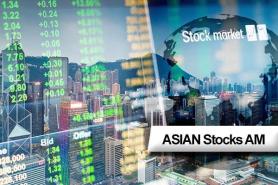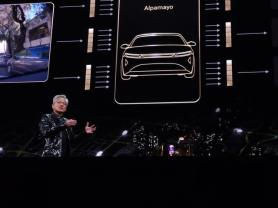![Professor Kim Ki-eung of KAIST [Photo: Institute for Information & Communications Technology Planning & Evaluation]](https://image.ajunews.com/content/image/2025/11/09/20251109111305670480.jpg)
As artificial intelligence becomes the engine of global competition, nations are racing to secure not only the technology but also the computing power that makes it possible.
South Korea’s recent partnership with NVIDIA — acquiring 260,000 of the latest AI graphics processing units — is more than a technical upgrade. It is a statement of intent that the country aims to be a serious player in the new digital order.
The deal has quadrupled South Korea's national AI computing capacity, boosting its GPU count from roughly 65,000 to more than 300,000. That is no small feat at a time when even global tech giants are struggling to source high-end chips. In the geopolitical economy of artificial intelligence, where GPUs are the new oil, South Korea has just secured a significant reserve.
The implications are profound. For years, the country’s researchers and startups have faced a bottleneck — not a lack of talent or ambition, but of access to large-scale computing infrastructure.
Now, with this expanded capacity, South Korea can train its own foundation models rather than relying on foreign systems. It is a crucial step toward technological sovereignty in an era when data and algorithms define national power.
This progress is anchored by the National AI Research Center, established last year with support from the government and the Institute for Information & Communications Technology Planning and Evaluation.
The consortium brings together the nation’s top universities — KAIST, POSTECH, Korea University and Yonsei University — and links them with international partners in the United States, Canada, France and the United Arab Emirates. That kind of collaboration is exactly what’s needed to turn computing power into meaningful innovation.
But what makes this move especially significant is its emphasis on openness. The government is not building a closed fortress of technology. Instead, it is opening public AI cloud resources to startups, researchers and small enterprises. That approach reflects a belief that creativity does not reside only in big corporations — and that innovation thrives when access barriers fall.
South Korea’s leadership of this year’s APEC forum has also given it a platform to push for global cooperation in AI. At the meeting, Seoul called for joint efforts to expand access to computing infrastructure and nurture AI talent across economies. This is an important recognition that the benefits of AI must be shared — that intelligence, like information, should not become another fault line of inequality.
Still, ambition alone is not enough. Building a truly global AI hub will require sustained investment, trust in open ecosystems, and safeguards to ensure ethical and responsible use. The challenge is to balance competitiveness with inclusivity — to lead without dominating, to innovate without excluding.
South Korea’s latest achievement is a reminder that in the age of AI, nations can chart their own course. By combining technological investment with openness and cooperation, the country is showing what responsible ambition can look like.
If the future of AI is to be shared, not siloed, it will be built by those who understand that intelligence grows strongest when it is connected.
* This article, published by Aju Business Daily, was translated by AI and edited by AJP.
Copyright ⓒ Aju Press All rights reserved.




